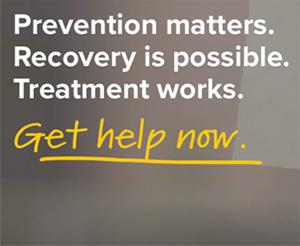Delaware works to prevent and treat substance exposure in infants - Sept. 17-23 is awareness week
Delaware and the nation are struggling with an addiction epidemic, and this epidemic is impacting pregnant women and their infants in increasing numbers. In 2016, there were 431 reports of substance-exposed infants to the Department of Services for Children, Youth and Their Families, a sharp increase from the previous year.
The two most common substance exposures found at birth in Delaware are marijuana and opioids, both of which are tied to short- and/or long-term negative consequences for the infant. Alcohol exposure, which has the most well-documented long-term negative impacts on an infant, is virtually impossible to detect immediately following birth but remains a serious problem all over the country.
Responding to input from OB/GYN providers, the Division of Public Health announced new guidance and educational materials on the dangers of substance abuse while pregnant, and how to screen pregnant women for potential addiction and connect them with treatment. The materials are available at www.helpisherede.com/Health-Care-Providers#obgyn-resources.
"Pregnant women often do not realize the extent to which even minimal alcohol and drug use can harm their baby," said Dr. Karyl Rattay, DPH director. "We also know that women struggling with addiction are less likely to access prenatal care and are significantly more likely to have an unplanned pregnancy. We want to work with the medical and treatment communities to increase awareness about the dangers of substance use while pregnant and connect those struggling with addiction to treatment."
Delaware's law, the Medical Practice Act, requires certified medical providers to give written, verbal and posted warnings to pregnant women regarding possible problems, complications, and injuries to them and/or to the fetus from consuming or using alcohol or cocaine, marijuana, heroin and other narcotics during pregnancy.
Under House Concurrent Resolution 44, sponsored by Rep. Ruth Briggs King, R-Georgetown, and Sen. Ernie Lopez, R-Lewes, the General Assembly has designated Sept. 17-23 as Awareness Week for the Prevention, Recognition and Treatment of Prenatal Substance Exposure in Infants and to Support Healthy Families in Delaware.
"Little things have a big impact on unborn and newborn infants. We must protect the health and welfare of the most innocent and vulnerable to enable them to have a healthy outcome," said Briggs King. "Delaware is faced with many challenges in our war on heroin and opioid addictions. Families and their futures depend on us to be leaders; therefore, it is imperative that we develop and deploy a strategy. When we know better, we do better. The sooner we share, learn, and act, the faster we see positive results."
In 2016, Delaware was one of the states selected for Substance Exposed Infants In-Depth Technical Assistance, funded by the U.S. Department of Health and Human Services Substance Abuse and Mental Health Services Administration, and the Administration on Children, Youth and Families, and provided by the National Center on Substance Abuse and Child Welfare. The Delaware Child Health Protection Accountability Commission, Department of Health and Social Services, Department of Services for Children, Youth and their Families, March of Dimes, Delaware Healthy Mother and Infant Consortium, Fetal Alcohol Task Force, Connections, medical providers and many others have begun work to:
- Survey birth hospitals and obstetricians and gynecologists on their experiences and needs to help them address the addiction epidemic.
- Increase screening of reproductive-age women who may be at risk for substance abuse addiction, and increase links to treatment and home visiting services.
- Educate physicians on the signs and symptoms of addiction in pregnant patients, and how to refer patients to treatment.
- Reduce stigma around maternal substance use, and highlight the role of addiction as a chronic disease and the importance of connecting families to support, not punitive measures.
- Develop a system where infants born substance-exposed and their families receive the medical treatments and supports they need as part of the federally required Plan of Safe Care process. The revised federal rule requires states to address the health and substance-use disorder treatment needs of the infant and family.
- Link to the Delaware Contraception Access Now (Delaware CAN) program to help women get access to effective contraception immediately postpartum.
To find the screening materials and more information about substance use disorders and addiction, and where to find treatment, go to www.helpisherede.com, or call the DHSS 24/7 Crisis Services Hotline at 1-800-345-6785 in Kent and Sussex counties. If someone is too drowsy to answer questions, is having difficulty breathing or appears to be so asleep they cannot be awakened, call 9-1-1 immediately.
Data indicates that the unplanned pregnancy rate of women struggling with addiction is very high - up to 90 percent in one study. Through the Delaware CAN program, any woman who wants access to effective contraception can get it free. To find Delaware CAN participating providers, go to www.upstream.org/delawarecan or call the DPH Family Planning office at 302-744-4552.






















































